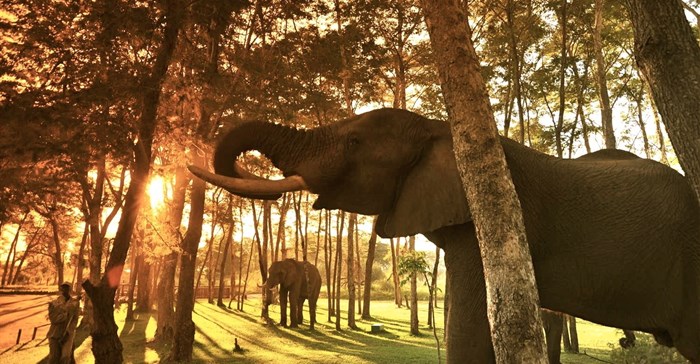
Related
Top stories






More news

Marketing & Media
Ads are coming to AI. Does that really have to be such a bad thing?















There has been a great deal of negative sentiment worldwide, related to elephant back safaris, as a result of unscrupulous operators who apply abusive training methods. There are, however, other elephant riding operations that practice training methods that are successful and based on the application of positive re-enforcement.
The origins of Zambezi Elephant Trails can be traced back to six elephants that were left orphaned after extreme drought led to culling operations in Zimbabwe in the 1960’s and 70’s. These elephants were trained for elephant back safaris on a commercial farm in Zimbabwe. During the height of the political uncertainty in 2002, these elephants, along with some of their trainers, were relocated to Zambezi Elephant Trails. The trainers had the benefit of secure employment and the elephants suffered less stress as, although they were in unfamiliar surroundings, they were being handled by familiar caregivers. The established relationships were vital for the safety, welfare and overall wellbeing of the elephants and facilitated ongoing training.
The elephants have consistently been trained through a process of positive re-enforcement, where attention, affection, and food play a major role in rewarding good behaviour. Experience has shown that this is the most effective method when training animals of such high intelligence. In addition to the positive training process, Zambezi Elephant Trails have worked closely with an advisory committee of veterinary specialists, who have assisted in all aspects of the training, ensuring that their emotional and physical wellbeing is sustained, even to the extent of doing dental check-ups.
“The elephants’ well-being has always been at the forefront of operations within the Mosi-Oa-Tunya National Park and these elephants have grown up with safe human support,” comments Nel.

Over the years, Zambezi Elephant Trails have provided a secure environment as natural as possible. The elephants spend a large portion of the day roaming free and feeding within the Mosi-Oa-Tunya National Park and nearby islands under the supervision of their handlers, often encountering and communicating with wild elephants and other wildlife. The dynamics of the herd is stable, with friendships, rivalries and subtle jealousies arising occasionally, just as in human relationships, which they work out amongst themselves.
Neither Safari Par Excellence nor Zambezi Elephant Trails support the practice of removing animals from the wild for commercial gain and have taken great care to ensure that no harmful training or treatment practices occur.
“Releasing these animals back into the wild permanently would result in more harm than good,” comments Nel. “They associate humans with kindness and this would ultimately count against them, so the long terms plans are based on what is best for the animals.”
Starting in January 2017 the number of rides on offer will be reduced, with the focus being on the morning rides. Mid-morning and afternoon rides will only be conducted by special arrangement.
“We shall actively encourage clients to interact with the elephants rather than ride them,” says Nel. “The alternative to elephant rides include the recent introduction of The Elephant Café which allows guests the opportunity to indulge in an experience of a lifetime – an exhilarating boat ride up the Zambezi River, or road transfer, followed by an introduction to these amazing mammals with a short interaction and then a sumptuous meal at The Elephant Café.”
Incentive groups are also encouraged to spend time to learn about and from the habits and characteristics of these wonderful creatures.